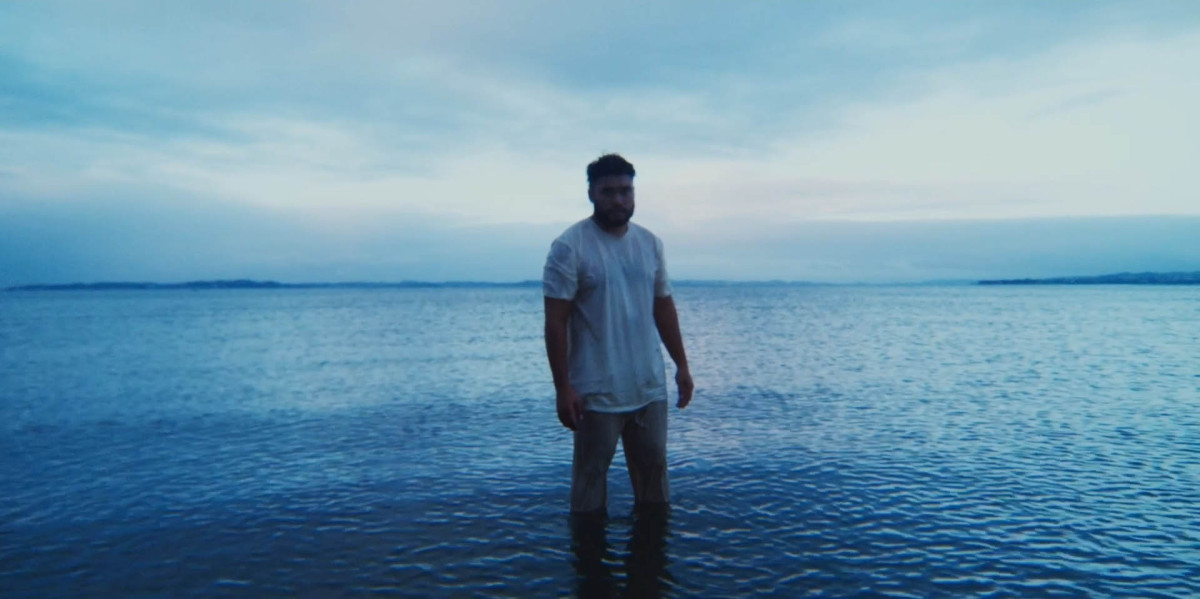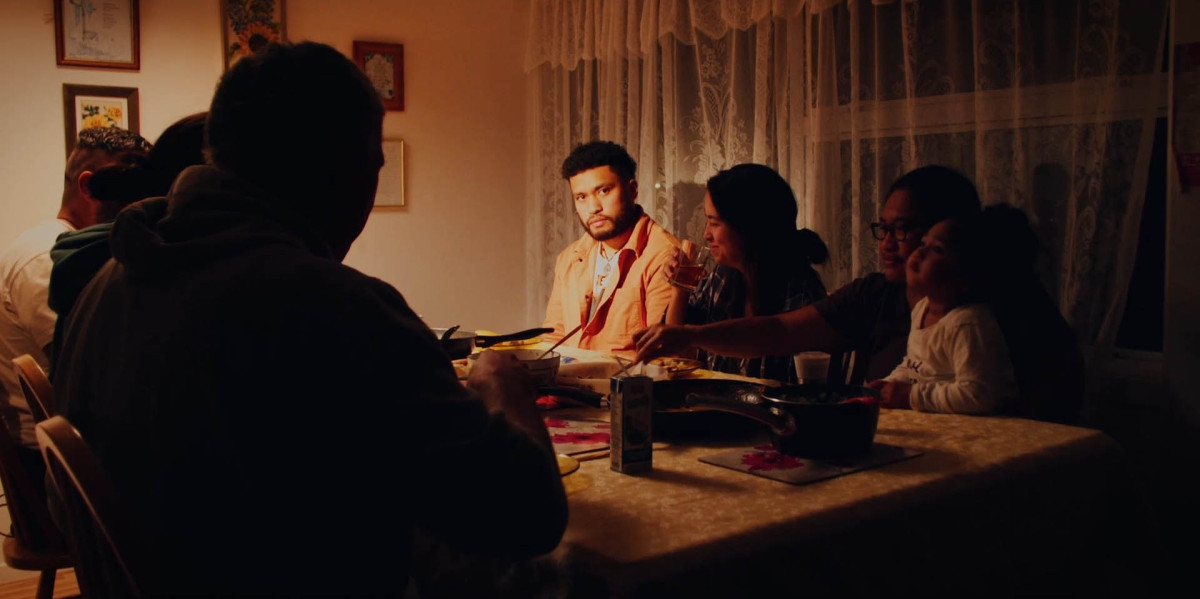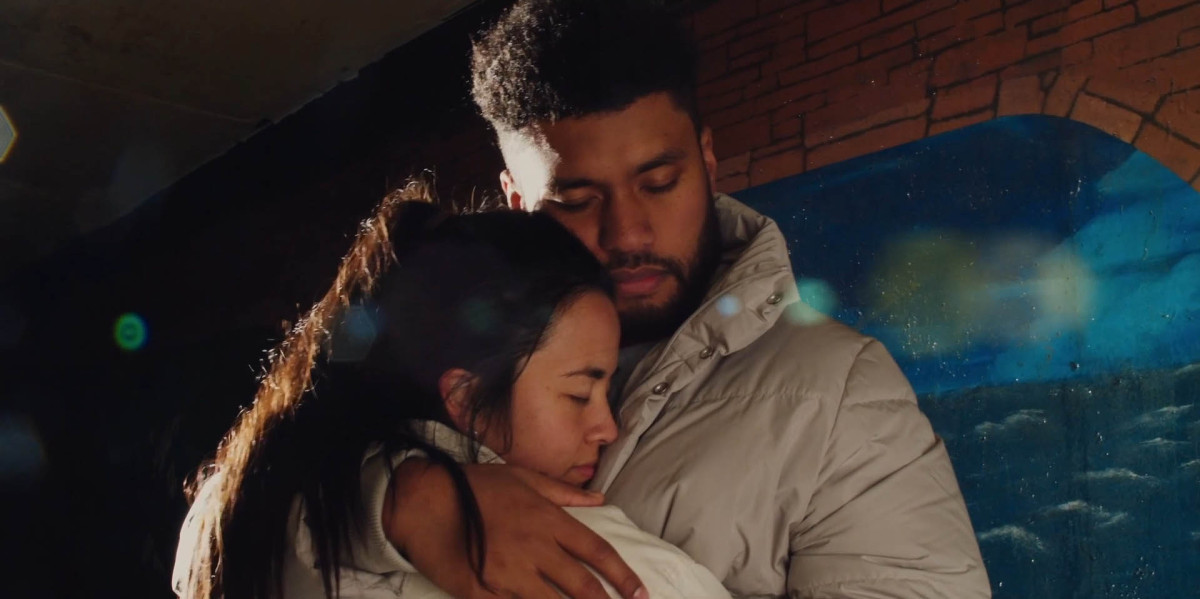Fijian-born artist Lepani gives Re: an exclusive insight into his latest music video, Tell you Something, about growth and acceptance in the face of imposter syndrome.
Grounded in Pacific values, Lepani’s music hopes to show people how they can draw strength from their whakapapa and those around them when they feel lost.
The music video is full of places and people that give Lepani comfort and peace - feelings that, as a Pasifika man raised in a culture that values humility, can be challenging to navigate.
Lepani opens the video alongside his rugby team, proudly singing the traditional Fijian hymn Eda Sa Qaqa.
The hymn is about overcoming trials through faith. With pride, the Pakuranga United Rugby Club echoes the words “we have overcome”.
It’s a fitting opening to Tell you Something as Lepani showcases his journey of self-love and self-acceptance.
Establishing the vā: space or betweenness
Vā refers to an important Pacific understanding of collective wellbeing and relationships. It is the idea that all space and things within this space relate and should be in balance because these are what define us.
Nurturing this space means building and maintaining relationships with mutual respect – for the benefit of all those within the vā.
Lepani’s music video features the various relationships and places within this vā which support his wellbeing and growth.

This shot represents his growth through calmness and chaos as he stands in the sea amidst grey clouds and pouring rain.
The vā between humility and confidence
Pacific culture is also rooted in values of humility. While this is uplifting and grounds people in a communal way, Lepani says he’s struggled to find a balance where he could be proud of who he was in the music industry.
“I convinced myself I’m not attractive, I’m not talented, and I’m not worth anyone's time,” he says.

These feelings stem from imposter syndrome, where a lack of representation in spaces can make someone feel like they don’t belong or they are not good enough.
The video is the visual journey of finding that balance - Lepani says it’s a journey that doesn’t have to be walked alone.
Matavuvale: The family

In this scene, three generations can be seen around the table. It’s a reminder of how far they have come since migrating from Fiji to Aotearoa in 1999.
The scene was shot in Lepani’s family home in Tāmaki Makaurau alongside his parents, partner, sister, brother-in-law and niece. Lepani says his family and personal space are both important in grounding himself.
“My family has gone through so much, with my parents working so hard to move us to a better country, giving my sister and I an opportunity to have a better life,” he says.
In relation to the vā, the family extends beyond the nuclear structure and beyond blood relations. Lepani says this allows people to draw on their cultural identities and family support systems to find positive ways of belonging and self acceptance.
Loloma: Love

Lepani says the song is also a dedication to his partner for her unwavering love and support while he struggles with insecurities and self-acceptance.
“The comfort I feel with her is not just physical, but it represents the emotional embrace I feel from her,” he says.
“She’s become a warmth and strength I never thought I needed.”
Nomui tokani: Friendship
Lepani’s friendships, or “brotherhood”, have also helped him. 
Shot at his local club fields, Lepani is surrounded by his team from the Pakuranga United Rugby Club.
“Rugby has always been an outlet for me. It’s allowed me to forget about the stress of life alongside like-minded men who really care for each other,” he says.

Another scene shows him with his two best friends and former bandmates. They have been friends for more than 10 years.
“They have influenced and broadened my mind through their vast range of interests in music and many other things in life,” he says.
“It’s not perfect, but I’m still growing”
Lepani hopes his new song will help people on their own journey to understanding it’s okay to not be perfect.
The video also places importance on finding a sense of self in the vā - the space that relates - so that the journey to self-acceptance is holistic, collective, and relational.

As Lepani is seen lying in the sea, he describes this powerful scene as his peace of mind.
“I find myself lying in my peace of mind. I’ve been learning to accept where I am in life, and that it’s not perfect, but I’m still growing,” he says.
“[I’m] accepting that I am a gifted individual who is capable of being loved and accepted.
“Accept who you are and embrace it.”
More stories:
'War on drugs has failed': Calls for a new way to tackle meth harm in NZ
Several recommendations have been made in a new report to tackle the drug's harm in NZ.
I’m a stay-at-home dad. It doesn’t affect my masculinity
"My gender didn’t suddenly retreat to some masculine polarity the moment I met my daughter."
Disabled, unable to work and on the benefit | Show Us Your Money
“We don't go on these benefits because we want to. … We literally don't have any other choice.”